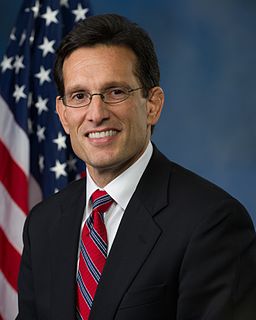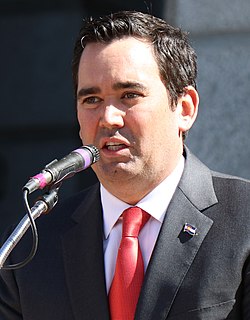A Quote by Eric Cantor
Again, the American people expect us to do what they are doing. It's tightening the belt, it's learning how to do more with less. That's a reality today, and we've got to do that in order to get the private sector growing.
Related Quotes
The Obama administration was filled with people that had deep resentment for people successful in the private sector, in business or what have you, with no way of understanding them or relating to them at all, and no desire to. Much of the Washington establishment, particularly the Democrat side of it, has the same view of American business and the private sector. And here comes Donald Trump entering their world, and they are not equipped to understand how he operates or what he's doing. They're plugging him and his business techniques into their political models, and it doesn't work.
It's just the banks who are the latest target of the American socialist left. There is a war on the entirety of the private sector. It is the private sector that employs most of you, that services most of you, that creates the economic prosperity that our nation has enjoyed - and there is a war on that private sector, and it's being waged from the Oval Office, and its foot soldiers are on Wall Street and in other cities around the country.
When we practice generating compassion, we can expect to experience our fear of pain. Compassion practice is daring. It involves learning to relax and allow ourselves to move gently toward what scares us. The trick to doing this is to stay with emotional distress without tightening into aversion, to let fear soften us rather than harden into resistance.
I spent ten years in the private sector, actually learning how business works. I'm the governor of Ohio, and I inherited a state that was on the brink of dying. And we turned it all around with jobs and balanced budgets and rising credit and tax cuts, and the state is unified, and people have hope again in Ohio.































